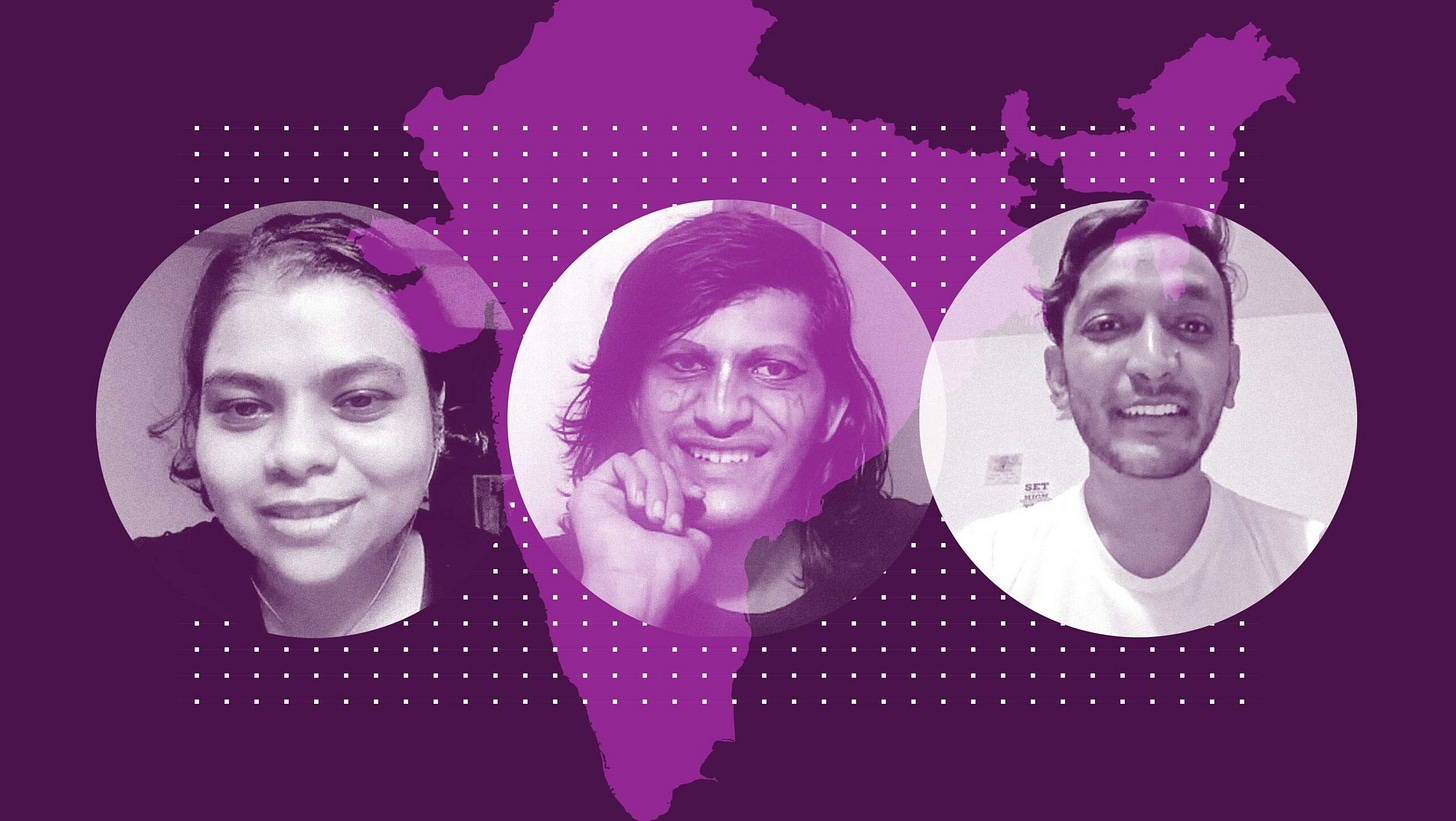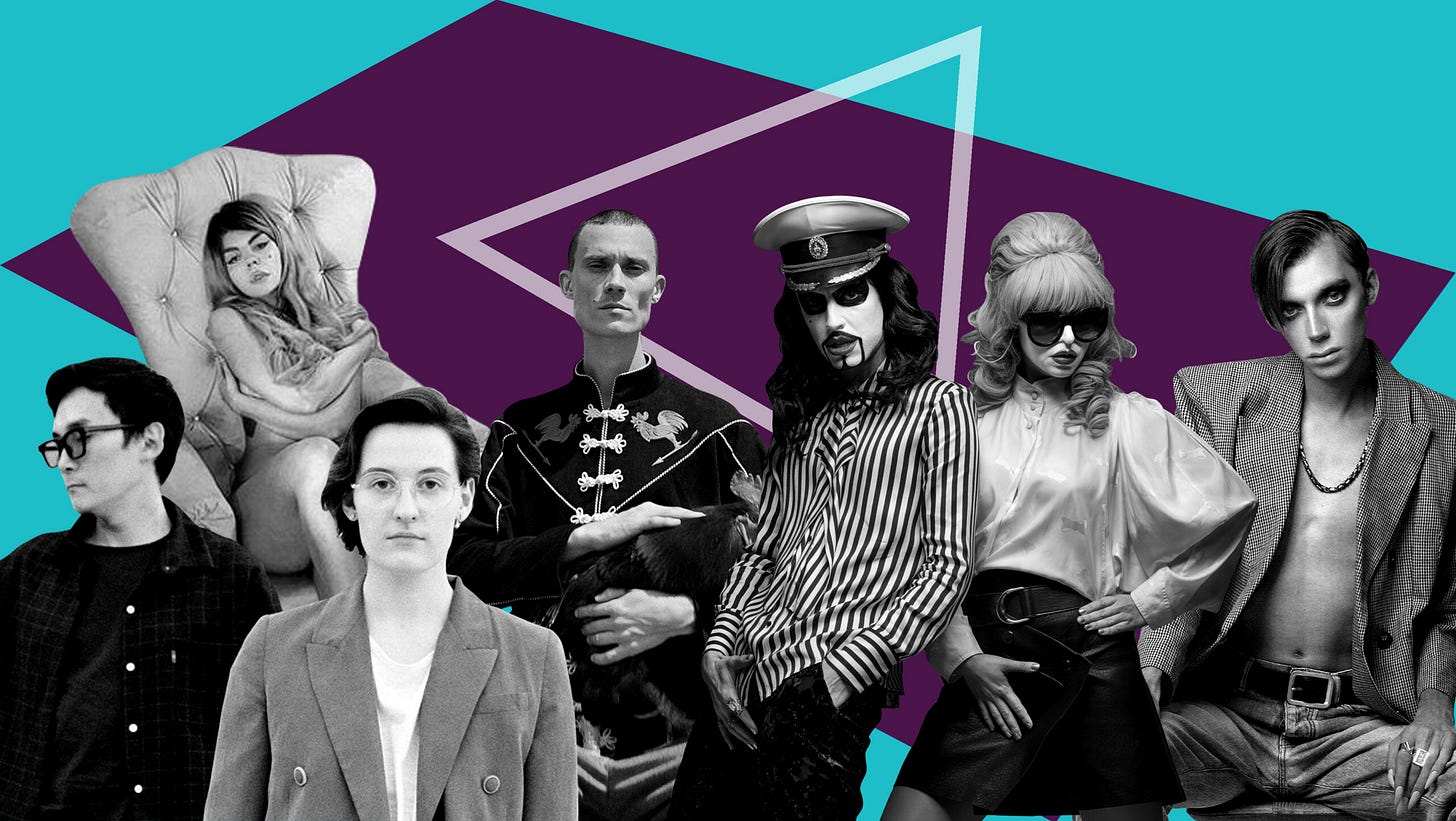Global Roundup: Feminists vs Sexual Violence and Greedy Billionaires; Queer Rights and Queer Artists; Safe Spaces for Indigenous Youth
Compiled and written by Miriam Batal
PHOTO: KOLA SULAIMON/AFP/GETTY IMAGES Via VICE
CW: This article contains sexual violence and violence towards women. This can be upsetting or triggering since folks might have directly or indirectly experienced such violence. If ever you feel the need to reach out, please do and know that you are strong.
On October 7, 2019, Kiki Mordi, a journalist, debuted her documentary, Sex for Grades: Undercover inside Nigerian and Ghanaian Universities (a great documentary if you have time to watch it). Dozens of students were asked by Mordi about their experiences of sexual assault by their lecturers. The documentary exposed the shortcomings of Nigeria’s justice system and an oppressive culture of silence.
Social media has become a platform for fighting back. Vera Uwaila Omozuwa was sexually abused while studying in a nearby church in Benin and killed by unknown men. Her case, buoyed by the utter quiet of life during the lockdown, leveraged the influence of social media with the hashtag #WeAreTired, sparking a movement for change and justice. Social media transparency has now entered a Northern Nigeria fraught with regressive legislation through the #ArewaMeToo campaign.
But while social media has provided a platform, the Nigerian Police Force has also been accused of being a stumbling block. In February 2019, Maryam Aiwasu, one of the leaders of the #ArewaMeToo movement was arrested.
The most nefarious act the police have been accused of so far occurred in 2019 during the infamous Abuja Women’s Raid. Under the guise of fighting prostitution, police in the nation’s capital of Abuja, performed random arrests, picking up women from restaurants and clubs. Over 60 women were unlawfully detained, with the police allegedly demanding sex from those who couldn’t afford to post bail.
Where we really need action is with the government because it’s not just by talking. If not, you’re just pouring water into an empty basket. And people will keep doing it because they are getting away with it. We cannot be an unequal society and think we can successfully stamp out rape culture when the people perpetuating it are the ones in power - Kiki Mordi
Although a new dawn is signalled with the new Anti-Sexual Harassment Bill, there is also a long way to go to bring about substantive reform.
——————————
AMAZON EMPLOYEES STRIKE AND HOLD RALLY ON PRIME DAY. PHOTO: ANNABELLE MARCOVICI/BLOOMBERG VIA GETTY IMAGES Via VICE
This past Friday was Black Friday (capitalism we can’t escape it)! And as we are fast approaching the holiday season, it is important to keep in mind that Jeff Bezos doesn't need extra cash in his pockets. In fact, Amazon accelerated its size and share values significantly during the coronavirus pandemic. CEO Jeff Bezos is $70bn wealthier today than he was at the start of the pandemic. However, this windfall came with significant safety issues over how the company manages COVID-19.
Amazon’s unchecked growth is a threat to everyone’s rights. There is a litany of abuses associated with Amazon business practices, from harassment of workers to unsafe conditions in its warehouses, that stretch right through to its tax affairs. Unless our politicians step up, this company that fails to pay its fair share of tax and fails to treat its workers with respect or pay a living wage, will continue to grow and dominate the global economy in the 21st century. It’s not the future that workers or the public want - Asad Rehman, executive director of War on Want
Rehman wishes that Amazon will be compelled to contribute back to the communities in which it works to ensure that society gains most from the global dominance of technology firms.
Campaigners have also addressed questions about the tax avoidance by Amazon, its impact on the environment and its privacy policies. Bezos invested more money on his Beverley Hills mansion in 2019 than he paid taxes, while the company's carbon footprint rose 15 percent between then and 2020.
The holiday season shouldn’t be about consumption and throwing our hard-earned money towards big businesses. Especially in 2020 EVERYONE IN THE MIDDLE AND LOWER CLASS has suffered. If you are planning to give gifts this year, please consider shopping locally! Local businesses are the beating heart of our communities and we need to support them.
—————————-
Credit: Brian Wong/Xtra Via Xtra
CW: This article contains transphobia and homophobia. This can be upsetting or triggering since folks might have directly or indirectly been affected. If ever you feel the need to reach out, please do and know that you are strong.
Section 377, the colonial-era legislation that criminalized homosexuality, was struck down in September 2018 by the Supreme Court of India. The legal framework in the country may have changed, but that’s meant little in the day-to-day lives of queer and trans Indians. Most members of India’s LGBTQ+ community still face challenges, and the COVID-19 pandemic has only made matters worse.
Many queer individuals have been forced to live with unsupportive or homophobic family members, while poorer queer and trans folk are contending with increasing financial struggles and the decimation of the few LGBTQ+ safe spaces.
A 2019 study by the International Commission of Jurists, a non-governmental organization, found that, regardless of their actual or assumed sexual orientation, gender identity and gender expression, LGBTQ+ folks in India face discrimination.
For Shyam Konnur, the founder of Mist, a queer and trans arts collective based in Bangalore, overturning Section 377 hasn’t amounted to much.
You are allowed to have sex…It’s nothing, nothing else…There’s no act that says you’re not supposed to discriminate against an LGBTQ+ person - Shyam Konnur
When it comes to India’s intersex and transgender community the Trans Rights Bill passed in 2019 was meant to protect India's trans community's civil rights, but it was drafted without any community consultations. The bill provides accepted transgender people with social security services such as pensions, accommodation and food, but makes the procedural road complicated by demanding documentation of sex reassignment surgery (SRS).
These issues have been exacerbated by COVID-19 restrictions which have made it more difficult for hijras to be on the streets as beggars or sex workers.
The pandemic has made even their access to food impossible, let alone these expensive procedures. Not to generalize, but most of them are living in a bad state, areas that might be in coronavirus containment zones - Shyam Konnur
Narendra Modi’s government, led by the Hindu nationalist Bharatiya Janata Party (BJP), has sown division in the country by undermining the rights of the minority Muslim population and other groups. That polarization is evident within the LGBTQ+ community. Konnur worries that such divisions will decimate the few safe communal spaces available for queer and trans people
—————————
Wyonna Batoche at the new Sk'ai Zeh Yah Youth Centre where she works in downtown Prince George, B.C. (Submitted by Sk'ai Zeh Yah Youth Centre) Via CBC
A new youth programme that offers 24/7 assistance to indigenous and non-indigenous people at risk from the age of eight to 29 has opened in downtown Prince George, British Columbia. Sk'ai Zeh Yah, meaning 'children of chiefs' in the Carrier language, has been run since early November by Carrier Sekani Family Services, associated with the Carrier Sekani Tribal Council. It provides after-school services, mentorship for older adults, career counselling and events to help indigenous young folks reconnect with their cultural heritage.
When they're eight years old, their dream is not to be on the streets. We want to show them that you are valued, there are people who care about you, and we want to walk on your journey with you - Wyonna Batoche
Batoche, who works at the new centre, is a member of the Lake Babine Nation who was bounced around the foster-care system in B.C. Batoche moved between various foster homes and group homes after being separated from her parents at the age of nine, finding it impossible to feel a sense of identity. She had no place to turn to find a warm welcome that mirrored her community.
The Youth Center of Sk'ai Zeh Yah is funded mainly by Indigenous Resources Canada. It actually has no rooms for long-term stays for young people, BUT it is considering constructing housing units.
——————————-
Credit: Francesca Roh/Xtra
It's not only difficult to make queer art in modern-day Russian; it can be deadly. But the digital queer media platform Otkrytie was launched in 2018 (which translates from Russian to English to The Open Ones). Also known as O-zine, the website quickly became a much-needed outlet for Russian queer artists, shaping art making and distribution possibilities.
In Russia, modern-day queer artists must do even more than just take artistic risks; they must fight for their right to be an artist.
Here are some interesting queer Russian artist that you might like. Watch and dance to their songs, like them, and give them a follow:
Andrei Petrov is one of the first Russian male beauty bloggers. He released his debut rap track “Pidor” in December 2019 (the Russian version of “faggot”) and became the country's first openly gay rapper.
Augustine, a non-binary singer lives in Norilsk, a Siberian city. Her debut single “Papa Sever” (“Father North”), a love letter to her hometown, was complemented by a dreamy music video made possible by O-zine’s crowdfunding project.
HRISTINA, an art-pop duo created in 2017 by singer-songwriter and LGBTQ activist Hristina Zarembo, who is openly bisexual and non-binary, and their bandmate a guitar player Igor Lidzhiev. “Marina” is their recent single.
Angel, a queer pop artist based in Moscow, has married the bleak image of the Russian gopnik aesthetic with trendy dance, queerness and defiant club-ready pop music. “Otpuskai” (“Let Go”) was released this past June.
ХЛОЯ (Chloë) a Moldova-born singer based in Moscow, has achieved popularity both on social media and in the busy party scene of the capital. A cover of “Ty Ne Ver Slezam” (“Don't Believe the Tears”), originally sung by one of the greatest queer artists in Russian pop music history, Shura, is one of Chloë's better-known tracks.
SADO OPERA The Queer SADO OPERA collective was founded in Saint Petersburg in 2009, prior to the enactment of the anti-propaganda law. Everything we know is that it consists of Colonel, Katya, drummer Icky, and bassist Licky. The group chooses to keep their names a secret. “Red” an 80s beat mixed with a lot of queerness!
————————-
Miriam Batal (she/they) is a completing their fourth-year undergraduate bachelor’s degree with a major in World Cinemas and minor in Feminist and Gender studies at the University of Ottawa. They are out and proud queer Lebanese – Canadian, they are abled-bodied, a settler of colour, intersectional feminist, body positivity, sex-positive, pro-sex worker, fully bilingual (French and English) person who lives on Turtle Island (Canada). She currently sits on the uOPride Executive team.
They are passionate about human rights, social justice and accessible mental health services and treatments. They are tired of cis white heterosexual men running politics and making decisions on their body and sexuality. They would like one day to make a positive change to this heteronormative world. When they are not protesting, or reading on queer theory/literature, Miriam enjoys spending time with their friends, going to the museum, attending drag shows, queer art exhibit, cinema and the theatre (pre-pandemic nonetheless) and video games.
They firmly believe that with education whether it be in academia or through lived experiences and conversation we are able to defeat ignorance, the patriarchy, colonialism and injustices.






